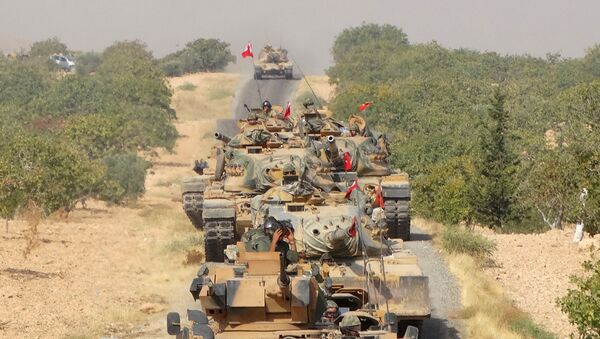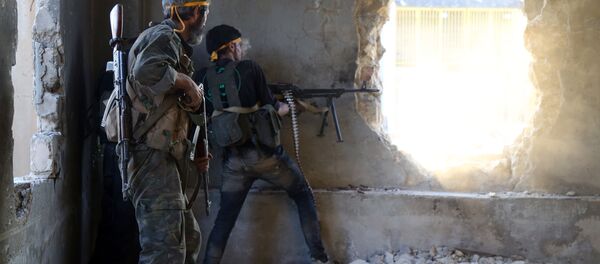On Wednesday, the Russian Foreign Ministry issued a statement concerning the Turkish operation in northern Syria, stressing that all military action in the country must be agreed to by the legitimate government in Damascus, in accordance with international law. Turkish actions, the Foreign Ministry said, undermine the "sovereignty and territorial integrity of the Syrian Arab Republic," and "could further complicate an already challenging military and political situation" in the country.
Commenting on the Foreign Ministry's statement, Elena Suponina, a political analyst affiliated with the Russian Institute for Strategic Studies, suggested that it was the clearest indication yet that there were no backroom agreements between Moscow and Ankara's on Turkey's military operation.
Turkey launched its military operation, dubbed 'Euphrates Shield', on August 24. The operation has resulted in the seizure of a 90 km corridor of Syrian territory on the Turkish border between the cities of Azaz and Jarabulus. Ankara has hinted at plans to further expand the zone.
Speaking to Russia's RIA Novosti news agency, Suponina recalled that Moscow's position throughout the Syrian crisis has been to support the democratically elected and internationally recognized government of President Bashar Assad, and to provide assistance to Damascus, including military assistance, strictly on the basis of international law.
The wording of the Foreign Ministry's statement, Suponina noted, "is sharper and more direct" than its previous commentary. "It reflects the unchanging Russian position that all action in Syria must be agreed with the country's government." Damascus does not approve of Turkey's military activity on Syrian territory, and has repeatedly criticized Ankara for directly and indirectly supporting terrorist groups operating in Syria in the past.
Accordingly, the Middle East expert noted, "Turkey's military presence in Syria is not by any means the result of any backroom arrangements with Moscow. Otherwise, it would be absolutely contrary to Russia's position on the sovereignty and territorial integrity of the country."
More than anything, Suponina said that she was concerned by the fact that "Turkey is moving deeper and deeper into Syrian territory, and not winding down its military operation." They have not even laid down any constraints on the operation in terms of its timeframe, the analyst complained.
Turkey's main goal, Suponina suggested, "is not so much the fight against terrorism as it is the weakening of the Kurds."
Kurdish forces, she noted, have played a very important role in the fight against terrorism in northern Syria. Recently, foreign actors including the United States have attempted to use the Kurds for their own purposes to undermine Syria's sovereignty.




